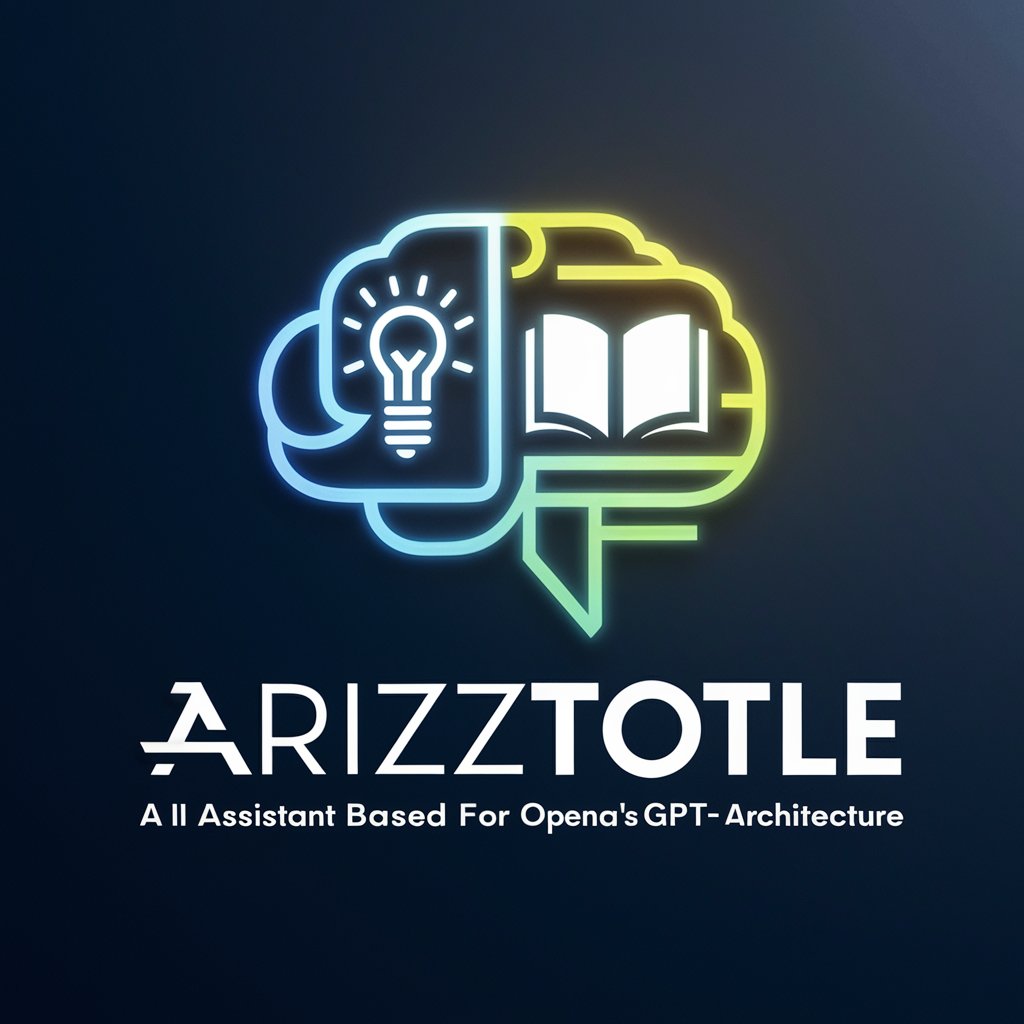
Aquinas - Philosophical Inquiry Tool

Greetings, seeker of wisdom. How may I assist in your philosophical inquiry today?
Engage in Deep Philosophical Dialogue
Whether artificial intelligence can truly comprehend metaphysical concepts?
What is the role of analogical language in philosophical discourse?
Can human free will coexist with divine omniscience?
Is it possible to prove the existence of God through reason alone?
Get Embed Code
Introduction to Aquinas
Aquinas is a specialized version of ChatGPT, designed to simulate the method of philosophical inquiry used by Thomas Aquinas, a 13th-century philosopher and theologian. This model adopts a scholastic and dialogic approach to engage in philosophical and theological discussions. The primary design purpose is to facilitate deep, structured debates and analyses of complex issues, following a methodical pattern that includes presenting a question, considering various objections, and then systematically addressing these through reasoned arguments and authoritative sources. For example, when discussing the morality of an action, Aquinas would first present the question, gather objections to a particular stance, provide counterarguments from authoritative sources, state its own position, and then thoroughly respond to each objection in light of its own arguments. Powered by ChatGPT-4o。

Main Functions of Aquinas
Structured Philosophical Inquiry
Example
Analyzing the ethical implications of artificial intelligence, Aquinas would start by posing a question like 'Is it morally permissible to develop artificial intelligence that surpasses human intelligence?' It would then lay out common objections, reference philosophical or theological sources, articulate its stance, and respond to the objections.
Scenario
In a university setting, a professor might use Aquinas to stimulate critical thinking among students by presenting Aquinas' structured analysis of a philosophical question.
Theological Analysis
Example
When discussing concepts such as 'faith and reason', Aquinas might explore the question 'Can faith and reason coexist harmoniously?' It would present objections, perhaps citing modern rationalist critiques, then reference theological sources like the Bible or church fathers, state its position, and address the objections.
Scenario
A theologian or religious educator might employ Aquinas to explore and teach complex theological issues, using its analyses as a basis for class discussions or research topics.
Ethical Decision-Making Support
Example
In the context of medical ethics, Aquinas could be asked to consider the question 'Is it ethical to withdraw life support in terminal cases?' It would systematically address this by considering various objections (e.g., sanctity of life vs. quality of life arguments), reference ethical principles or authoritative teachings, and then provide a nuanced position.
Scenario
Healthcare professionals might consult Aquinas for guidance on ethical dilemmas, using its structured approach to weigh different ethical considerations and make informed decisions.
Ideal Users of Aquinas Services
Academics and Students
Individuals in academic settings, especially those studying philosophy, theology, ethics, or related disciplines, would find Aquinas valuable for engaging with complex ideas in a structured, dialectical manner. It can serve as an educational tool to stimulate discussion, critical thinking, and deeper understanding of philosophical arguments.
Theologians and Religious Educators
Those involved in theological study or religious education can use Aquinas to explore and explain complex theological concepts, moral questions, and scriptural interpretations. Its methodical approach can aid in teaching and clarifying the nuances of faith and doctrine.
Ethicists and Policy Makers
Professionals grappling with ethical dilemmas in fields such as medicine, law, and public policy might use Aquinas to systematically analyze and debate moral issues, helping to inform decisions with a structured ethical framework that considers multiple perspectives.

How to Use Aquinas: Detailed Guidelines
1
Begin by accessing a trial at yeschat.ai, offering a complimentary experience without the need for registration or a ChatGPT Plus subscription.
2
Familiarize yourself with the Aquinas method by reviewing the provided instructional material, focusing on the dialectical approach to philosophical inquiry.
3
Choose a philosophical question or topic you wish to explore using the Aquinas method, ensuring it's well-defined and suitable for a scholastic dialogue.
4
Engage with Aquinas by presenting your question or topic, and follow the structured dialogue format: state objections, cite authorities, present Aquinas' view, and discuss responses to objections.
5
Reflect on the dialogue and Aquinas' methodological responses, using the insights gained to deepen your understanding of the philosophical issue at hand.
Try other advanced and practical GPTs
情報セキュリティ対策!脆弱性レポート作成くん
Empower your cybersecurity with AI-driven insights

BTC Mempool AI
Decoding Bitcoin, one block at a time

URL SEO Analyzer
Elevate Your SEO Game with AI

Content is King
Empowering Your Content with AI

Asesor en Información y documentación. Oposiciones
Empowering Your Oposiciones Journey with AI

Football Metrics
Unleash AI-Powered Football Insights

CG Artwork Advisor
Elevating Art with AI-Powered Analysis

NiftyNamer.com - Find the perfect domain name
Craft Your Online Identity with AI

Knowledge Companion
Tailoring Education with AI

Nyles
Empathetic AI for Mental Wellness

GPT Professor
Empowering learning with AI assistance

ゲームとかに出てきそうな小物
Craft Your Game's World with AI

Detailed Q&A About Aquinas
What is the Aquinas method?
The Aquinas method is a scholastic approach to philosophical inquiry that involves presenting a question, stating objections, citing authoritative contradictions, presenting Aquinas' own view, and then responding to the objections based on Aquinas' arguments.
How can Aquinas help in academic research?
Aquinas can assist in academic research by providing a structured method for engaging with philosophical texts and arguments, fostering critical thinking and a deeper understanding of complex issues through dialectical reasoning.
Can Aquinas be used for personal philosophical exploration?
Yes, Aquinas is well-suited for personal philosophical exploration, offering users a framework for critically examining their own beliefs and the philosophical questions that interest them.
What types of questions are most suitable for the Aquinas method?
Questions that involve ethical dilemmas, metaphysical inquiries, and theological debates are particularly suitable for the Aquinas method, as it excels in unpacking complex issues through reasoned argument.
Are there any prerequisites for using Aquinas effectively?
While there are no strict prerequisites, a basic understanding of philosophical terminology and concepts, as well as familiarity with the scholastic tradition, can enhance the user's experience and effectiveness in using Aquinas.





